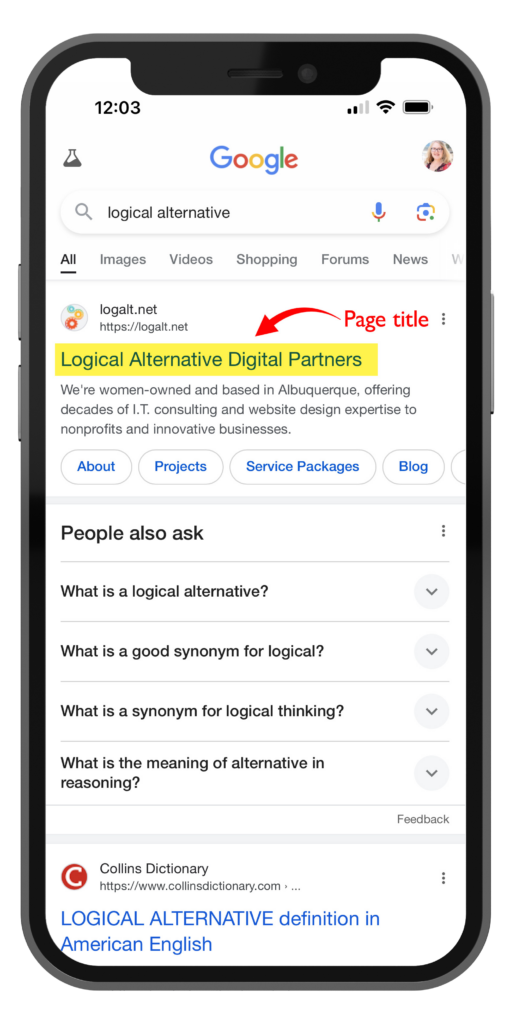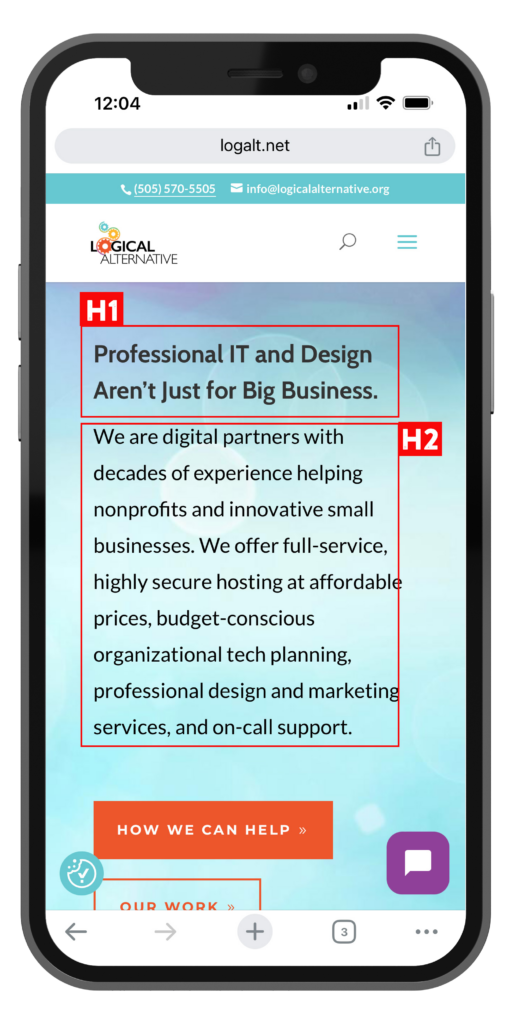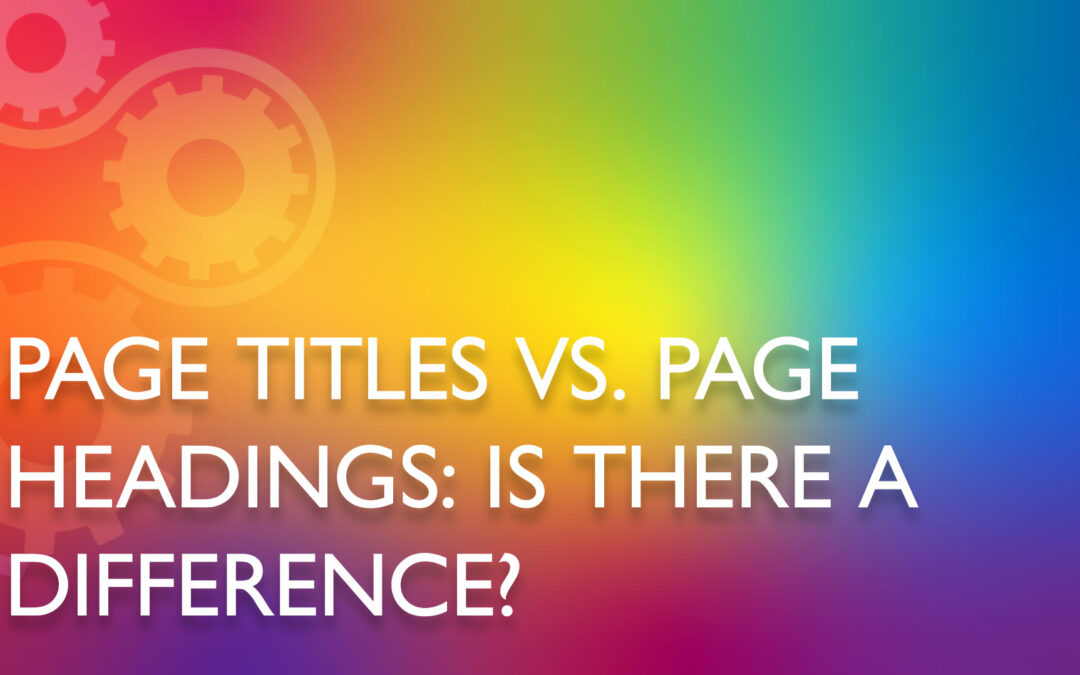One of the easiest and best ways to improve both your site’s accessibility and its SEO is to have well-written page titles and page headings.
But wait…aren’t those the same thing?
Not at all. A good way to think about this is that a Page Title is for search engines. It’s what people see in the list of search engine results when they enter a relevant question. It is part of your site’s metadata, which includes the page titles, descriptions, and all the other behind-the-scenes information that tells search engines what your site is about.

The H1 heading is what they see at the top of your page AFTER they click the Page Title in the search results. It is part of the content of every page, and tells your site visitors what your page is about.

So if Page Title is for search engines (and people searching on search engines), and H1, H2, H3 etc. are for your site visitor who needs to know what the page is about…how does this impact accessibility directly?
H1, H2, etc. don’t just create a visual hierarchy. People with low vision often use screen readers, and they look for information to be presented in specific ways. If you have a poor page title, search engines won’t know what your site is about, and visitors may never find you. And if you have no H1, H2, H3 headings, or your H1 doesn’t accurately describe what your page is about, then a visitor using a screen reader will be missing important information.
DO: A general rule of thumb is that every page on your site should have only one H1 heading, two H2 headings, three H3 headings, and so forth. You don’t have to adhere to this exactly, but it gives you an idea of how to structure your headings.
DON’T: Arbitrarily use different H headings just because you like how they look. This is what styles are for.
Okay, I understand how to structure my page using H tags, but how do I set the page title and description for search engines?
If your website is on WordPress, there are a number of plugins that can be used to set your site and page metadata, which is what Google uses to display your site and pages in search results. We like the free Yoast SEO plugin, because it also allows you to set page titles, images, and preview text for social sharing. Another good option with more advanced features in the free version is Rank Math.
For other types of sites, you can learn more about the ins and outs of page titles here.

